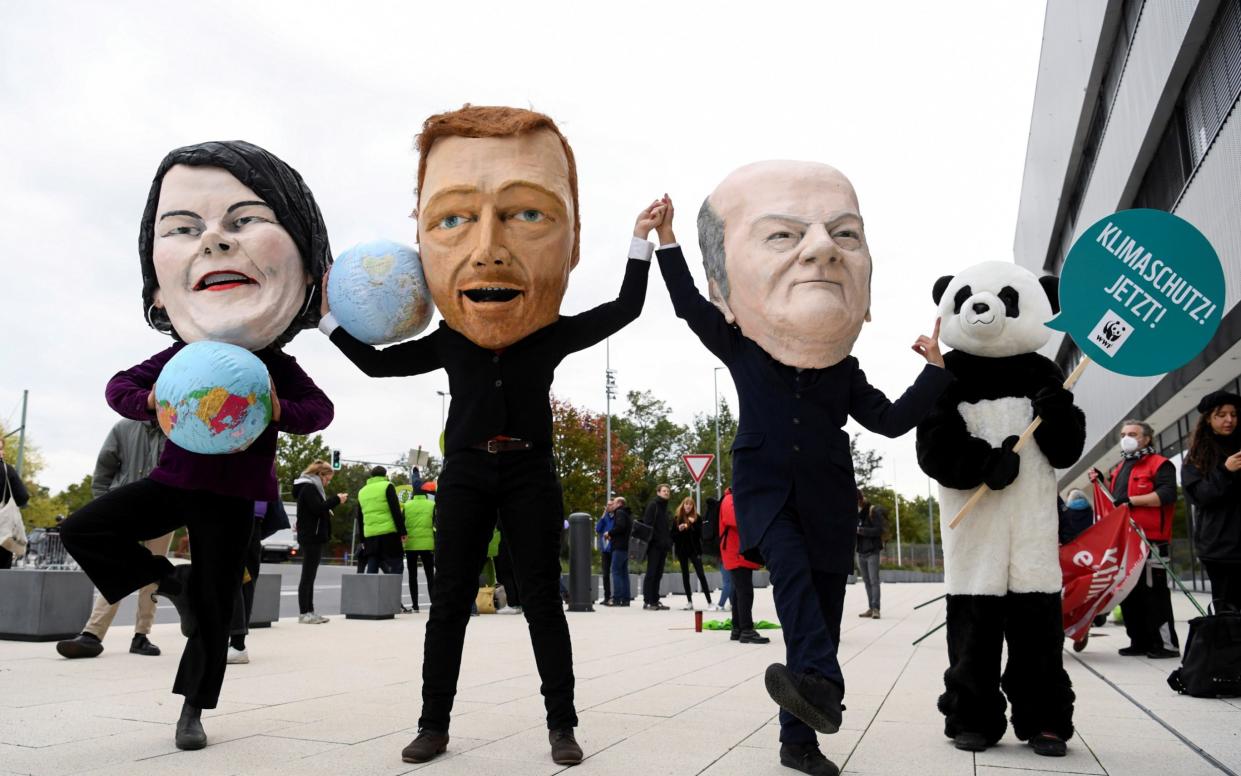No speed limit for German motorways as Greens drop demand in coalition talks

Plans to impose a speed limit on German motorways appear to have been defeated for now, after the first details emerged from talks to form a new coalition government on Friday.
The German Greens were able to claim significant victories including a commitment to phase out coal power ahead of schedule and ambitious plans to expand wind power.
But there were also big wins for the centre-Right Free Democrats (FDP), who blocked any tax increases, including controversial proposals for a wealth tax, as well as a speed limit.
Olaf Scholz moved closer to succeeding Angela Merkel and becoming the centre-Left Social Democrats’ (SPD) first chancellor in 15 years as the first week of coalition talks were hailed a success.
Party leaders unveiled a detailed policy paper they say can be a blueprint for a successful three-way coalition between the SPD, Greens and FDP.
“This will probably be the largest industrial modernization project that Germany has carried out for over 100 years,” said Mr Scholz.
The agreement includes commitments to raise the minimum wage to €12 (£10) an hour and replace the current social security system with more generous benefits.

Headline climate policies include a commitment to phase out coal power by 2030, five years ahead of the current schedule, although plans to use gas power to make up the shortfall could prove controversial in the light of current gas prices.
They also include ambitious plans to devote 2 per cent of Germany’s landmass to generating wind power.
But some of the most high-profile Green policies were missing, including their demand for a 130kmh (83mph) speed limit on the German motorways.
Speed-limit free Autobahns are totemic for sections of Germany society and the FDP vowed not to back down over the issue.
“We couldn’t enforce the speed limit,” Robert Habeck, the Green leader conceded. “But we’re very satisfied in other areas.”
The other big win for the FDP came in blocking proposed tax increases for high earners.
The SPD and Greens both campaigned on proposals for an annual wealth tax on existing assets, but those plans have now been quietly dropped.
The agreement also includes plans to double the speed of programmes to digitalise Germany, which remains far behind most of its competitors in this regard.
The party leaders hailed the agreement a success and called for talks to move on to detailed formal negotiations next week.
Before that can happen the Green Party will have to vote to go ahead in a special party conference expected to be held as early as this weekend, where party leaders could face some opposition over their agreement to drop demands for a speed limit.
The FDP will also have to approve the deal, but the decision will be made by party committees who are thought unlikely to oppose it.
The SPD leadership can wave it through.

 Yahoo News
Yahoo News 
